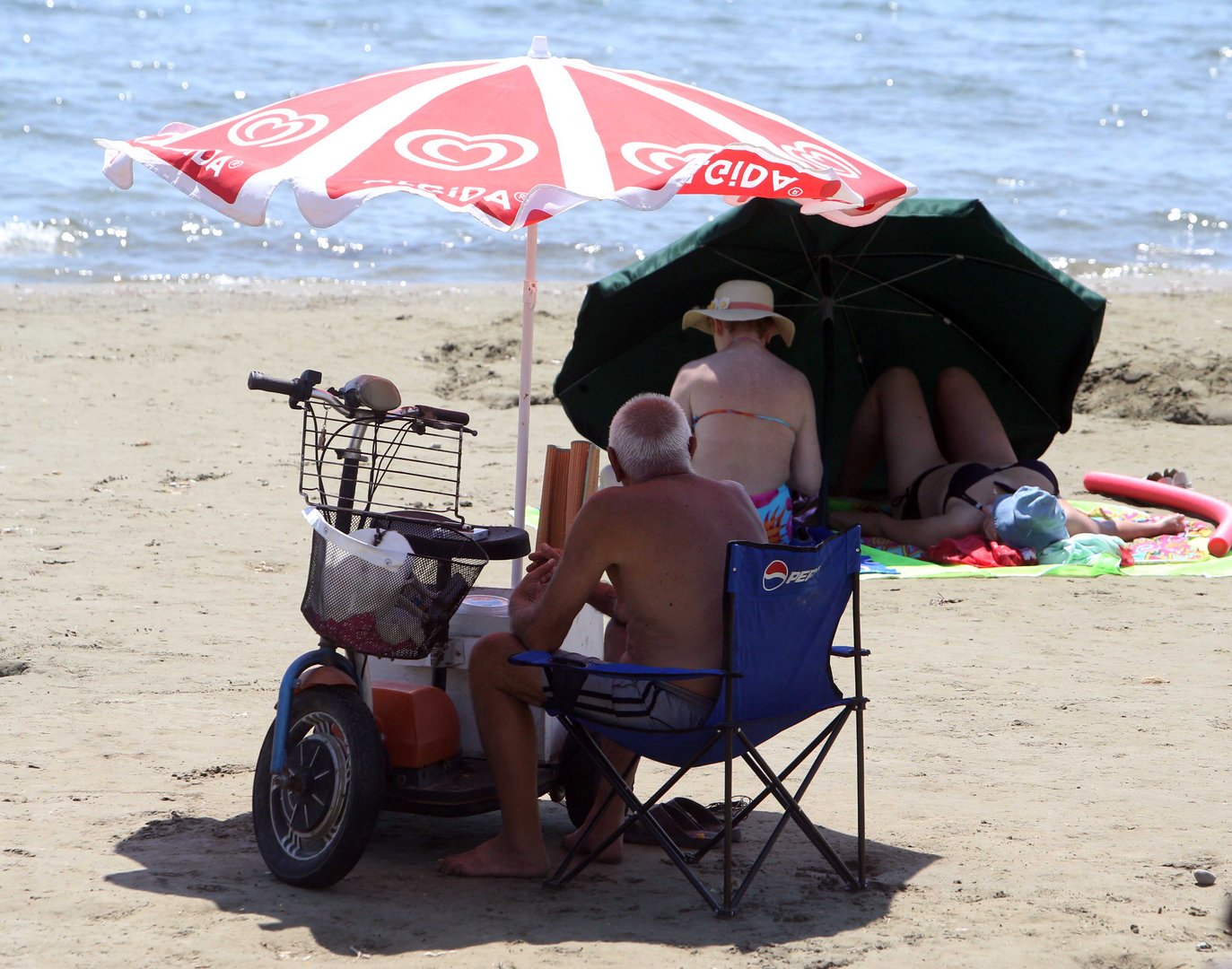Cyprus’ soaring temperatures prompted the health ministry on Friday to advise the public to avoid frequent sun exposure.
The list of recommendations includes among others advice on what to eat, drink and wear to survive the heat.
With temperatures rising to 43 degrees amidst the Cleon heatwave, people in Cyprus were urged to choose shaded and cool areas and avoid crowded spaces, frequent sun exposure, unnecessary movement, and heavy physical exercise.
Authorities also advised to avoid using the oven and stove as much as possible to prevent further increase in indoor temperature.
“Never leave infants, the elderly, and pets in a closed car,” noted the health ministry.
They also suggested to adjust fashion choices, recommending light clothing with loose, light-coloured garments and the use of hats and sunglasses when exposed to the sun. They also advised to avoid alcoholic beverages and caffeinated drinks, and to opt for light meals low in fats, with an emphasis on consuming fruits and vegetables.
Adequate fluid intake such as water and fruit juice was recommended, as well as the use of fans or air conditioning systems to create airflow, especially during the hottest hours of the day. During the night, it is beneficial to keep the windows open, the health services noted.
They also advised people to take multiple, lukewarm showers throughout the day.
Special attention should be given to vulnerable population groups such as infants, the elderly, and pregnant women. “If there is a newborn at home, it is recommended to dress them lightly and seek guidance from a paediatrician regarding fluid intake,” the announcement said.
Meanwhile, individuals with chronic illnesses, such as respiratory or cardiovascular conditions, should consult their doctor for any specific measures they should take.
In case symptoms of high temperatures are observed, the public should consult their personal physician or seek immediate medical assistance. Initial symptoms of heat exhaustion may include severe headache, fatigue, weakness, feeling faint, decreased blood pressure, nausea, vomiting, and tachycardia (rapid heartbeat).
More severely, heatstroke syndrome is characterised by a sudden increase in body temperature (>40.5°C), red, hot, and dry skin (no sweating), dry and swollen tongue, rapid pulse, rapid breathing, intense thirst, headache, nausea, dizziness, and confusion.
According to the health services, the highest risk from high temperatures is attributed, among others, to infants, young children, and the elderly (especially those living alone), individuals working or engaging in intense activities in outdoor and indoor areas with high temperature and humidity, those in areas with increased atmospheric pollution (industrial areas), and individuals with chronic illnesses (such as diabetes, chronic kidney failure, blood pressure disorders, cardiovascular diseases, liver diseases, lung diseases, obesity). Additionally, individuals taking specific medications (such as insulin, antidiabetic drugs, diuretics, anticholinergic drugs, psychotropic drugs), pregnant women, and people with disabilities are also at risk.







Click here to change your cookie preferences